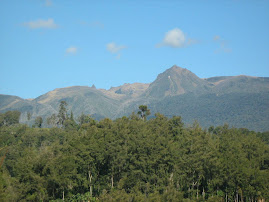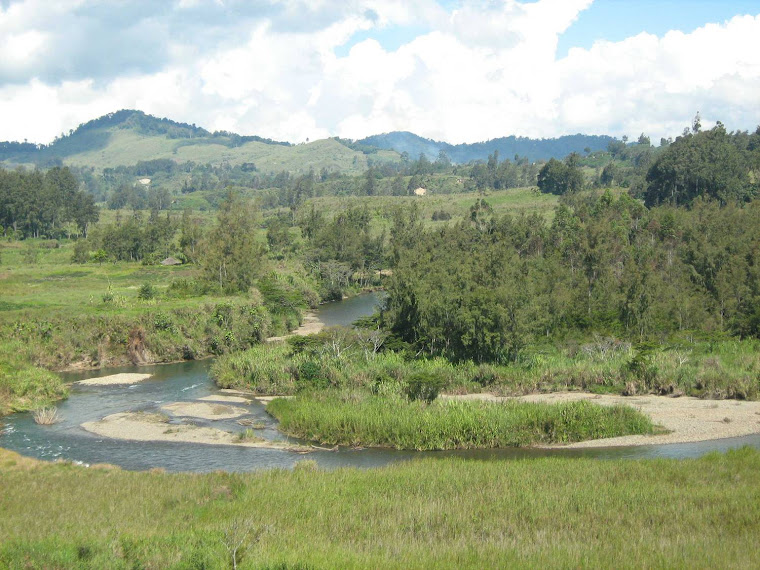This article is published under my "Asia Pacific Perspective: China +" column with Sunday Chronicle newspapere, PNG.
................
By Mathew Yakai in Beijing
AFTER the fanfare of the glamorous Beijing 2008 Summer Olympic Game with the theme, “One World, One Dream”, what other events can further extend and expand the international standing and exposing the glory of the 1.3 billion Chinese people then the forthcoming Shanghai World Expo 2010.
The world event which will take place in the China’s financial center, Shanghai, will attract 167 countries and 27 international organizations showcasing their pride from modern technological innovations to raw agricultural products and untouched indigenous cultures of various surprises.
China was bashed by foreign governments for its substandard products, human right issues, corruption, and environmental damages in the past.
This is not even different to the humiliation period China experienced in the hands of Western Powers in history. But Great China is humbled, swallowed its vulnerability and recently made its presence felt in the world from the cloth one wears to children toys enjoyed by children in United States of America.
During the 2008 Summer Olympic Game, the world leaders gathered to cheer for their homelands. Athletes from all over the world came and showcased their talents but importantly, showing friendship through sports.
Gone is the Olympic Game but the legacy and international statutes China built to establish its reputation is now accepted by the international community.
China is seen today as one of the major players in the regional and world politics and issues affecting humanity, yet remains a third world nation according to the World Bank definitions.
China is again in 2010 will provide another major international event to bring all nations and international organizations together to showcase their products, whether it be in technology, agriculture, tourism, and the rest
The theme is “Better City, Better Life”, by essence a follow up of the Olympics theme, “One World, One Dream”, inspiring for a better society for humanity and harmony to prevail in today’s global village where nation’s sovereignties are diminishing given the globalization trends.
According to the expo web site, city is a crystallisation of human civilisation. Just as the American social philosopher Lewis Mumford put it,” the city is a special structure which, fine and compact, has been designed to preserve the fruits of human civilisation."
Many Western languages have derived their versions of the term "civilisation" from the same Latin word "civitas"(meaning "city”), and it is by no means a coincidence.
By virtue of its embracing and regenerating nature, the city has played a significant role in the perfection of order in human society
Thought it is to enhance cities and improve people’s lives, the occasion will be used by countries to display their products of various kinds to attract both investors and tourists.
There is no better place to do that then in China, given its continuous economic growth between 7 to 9 percent despite the world financial crises.
As of today, 314 days are remaining. Though the days may seem long, the count down is continuing and the preparation for individual countries to erect their pavilion needs early preparations.
Out of the 167 countries, 22 are Americas, 48 are Africans, 41 are European, 42 are Asian and Oceania with 14, PNG included. A total of 27 international organizations are also part taking.
Countries throughout the world have made total commitment to take up the opportunity to showcase their individual countries.
This commentary has been watching closely whether any official statements would be released by the Prime Minister and his government in regard to the Expo, which PNG must take part.
Prime Minister Somare was in China in April meeting China’s President Hu Jintao in Beijing but he never made any commitment to part take in the Expo.
As always, Somare reiterated on the importance of the bilateral relationship and economic and technological cooperation but nothing on the Shanghai Expo given the fact that PNG has one of the vast and unique cultures and products to showcase.
Somare’s New Zealand counter part who was also in Beijing coincidently made a commitment of US$17 million for its expo pavilion.
China Daily reported that day that New Zealand will invest tens of millions of dollars to promote and construct the New Zealand pavilion for the upcoming World Expo 2010.
Prime Minister John key said the NZ$30 million (US$17) investment was five times the amount New Zealand spent when it attended the previous world expo in Aichi, Japan.
Though countries are crunched by the world financial crises, Key admitted that the Shanghai 2010 World Expo is a golden opportunity to showcase goods from New Zealand, and he will lead a business delegation to China during the expo.
China is already a vital economic partner for New Zealand and rates as its second largest source of import and third largest trading partner. Trade between New Zealand is valued at more than NZ$9 billion per year.
New Zealand exports to China have more then quadrupled in the last 10 years, with particularly strong growth of 35 percent in 2008, when the two sides inked the FTA agreement.
For PNG, Sir Michael told Hu Jintao that, “China is not only a big and growing consumer market for PNG products, it is also a genuine development partner.”
Somare was the first Prime Minister to visit China in 1976 to establish bilateral relationship and by today he should know the importance of Shanghai Expo and make a commitment for PNG’s expo pavilion.
PNG is a noticeable player in the region, just line New Zealand and Australia when it comes to trading with China.
The total trade volume between PNG and China was around K700 million in 2007. PNG exports to China were around K470 million and imports were around K230 million.
“PNG enjoys a trade surplus of around K240 million with China,” Sir Michael said.
PNG’s exports to China constitutes mainly of crude oil, logs and timber products, agriculture products such as palm oil, rubber, vanilla and coffee, marine products, copper and gold and PNG’s imports from China consist of rice, machinery, mechanical and electrical appliances, textiles, iron and steel products, pharmaceutical products, plastic products, footwear, fertilizers, tools and household goods.
Other Chinese investment activities are in the areas of wholesale, retail, small-scale manufacturing, fast food outlets, and real estate and entertainment facilities.
But this scribe is wandering why Somare is not making any commitment towards the Expo to date?
This is an event PNG must participate to make its international statutes knows in all its uniqueness because PNG is a “Land of Unexpected” with thousand tribes and unique cultures.
Reliable sources have informed this scribe that a country like PNG with diverse unique cultures and products to sell does not even have its own pavilion.
PNG will share a common pavilion with rest of the 12 Pacific island countries, excluding New Zealand and Australia who have the leadership capability to have their own pavilion.
Two copra bag, one coffee bag, one tea bag, and few vanillas will not be enough for PNG to display given its very limited space which will be shared amongst the 12 Pacific Island countries. And what happens to rest of the products?
PNG, the largest island country, rich with natural resources that attract overwhelming revenue for the government with the hundreds unique tribes deserves its own pavilion in the Expo.
Where is the fault when the pavilion for the expo was identified? Was it in Waigani or Beijing or Pacific Island Forum? Who are the leaders designated to work on securing a pavilion for the Expo. Are we paying people who are sitting on government coffers growing fat and doing absolutely nothing?
PNG has one of the best air lines in the Pacific, Air Niugini with direct flight to Hong Kong from Port Moresby, unlike the other island countries.
Therefore, a separate pavilion should have been secured to display loads of products using our own airlines to transport.
Even the Huli from Tari, the Trobriand Island dancers from Milne Bay, the Tapioka dancers from Manus, the carvers, painters, and artists should be using our already established and convenient air line to display their uniqueness in China and the world.
On April 20, the daily papers reported that Culture and Tourism Minister Charles Abel with Michael Mel and Daniel Waswas were representing PNG in the African Caribbean and Pacific (ACP) and European Union (UEU) cultural meet in Belgium.
“For too long, governments have considered culture as secondary to all other matters and it is time that this perception changed,” Mr Abel said in a statement as reported by The National.
To date, Mr Abel is not making any statement in regard to the Shanghai Expo because this is an expo where PNG can showcase its cultures which he deems necessary.
In PNG politics, politicians like talking, and they lack leadership, action and wisdom to put into action.
For how long will we keep listing to those shallow comments and promises with no actions?
The world is changing and economies are now strategizing their web and bilateral and economic relations to meet the changing geopolitical situations.
Numerous overseas trips made by the Prime Minister on the expense of Papua New Guineans will still remain unproductive if actions are not taken, instead signings of tens and thousands of agreements between Waigani and other countries go on for decades.
China is providing a forum for countries to display their products and they are making use of the opportunities.
This is an opportunity PNG must make use to show other Asian countries that it even has the potential to become the member of ASEAN.
Note: This column addresses issues China is engaged in and how PNG can learn from.. The writer is a PNG student in China. Comments and inquiries email: m_yakai@hotmail.com or phone: 151169888560
American movie include Fijians as cast and crew
7 years ago









No comments:
Post a Comment